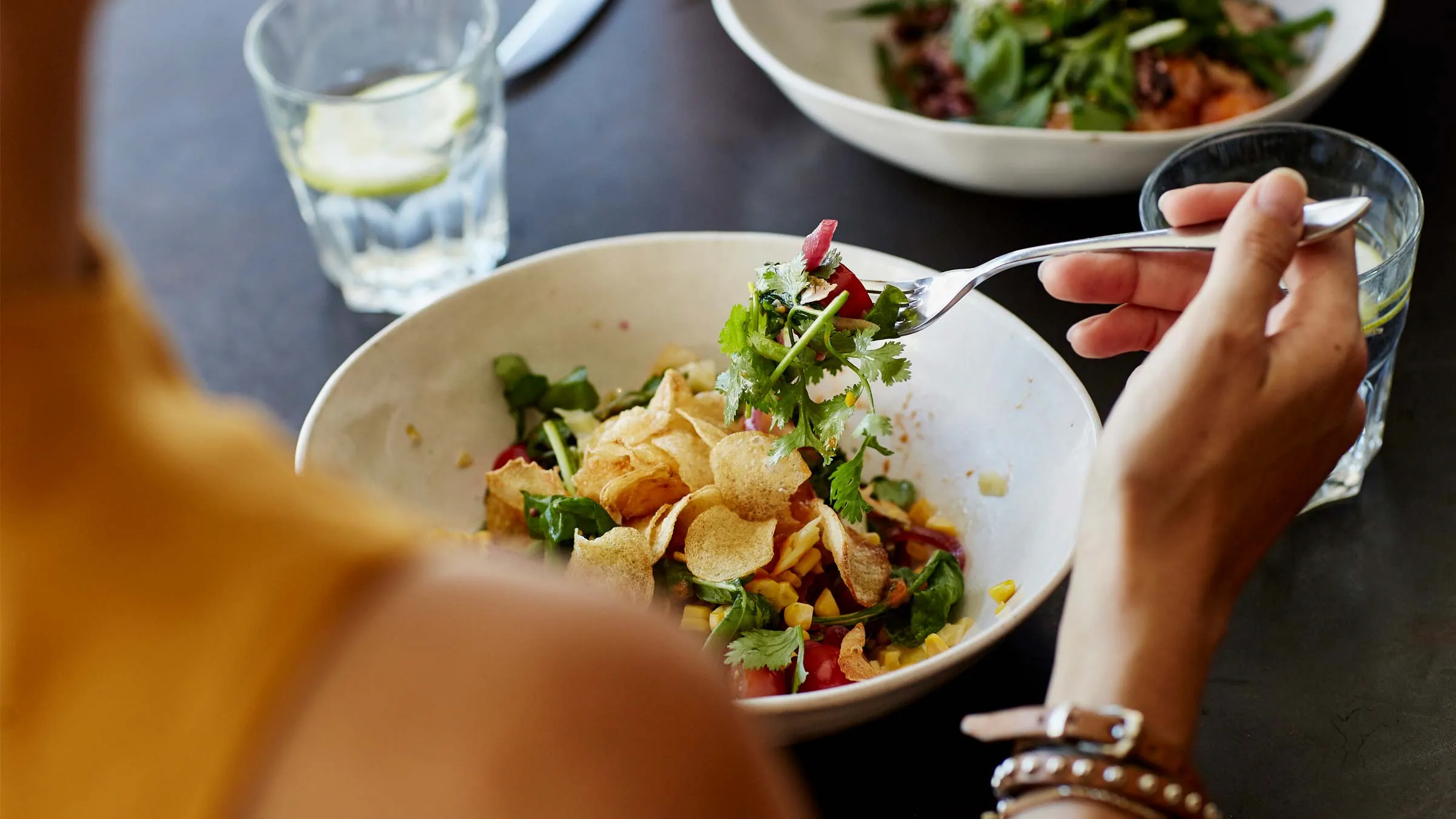
While many risk factors for developing breast cancer are out of our control — such as family history and inherited genetics — exercise and diet matter a lot when it comes to reducing your breast cancer risk. Maintaining a healthy weight is the second most important way to reduce your risk of developing breast cancer, just behind not smoking.
If you’re trying to reduce your risk of developing breast cancer, your diet should come primarily from plants — fruits, vegetables, beans, nuts and whole grains such as oats, barley, brown rice and buckwheat.
Plants contain vitamins, minerals and phytochemicals, compounds that give plants their color, flavor and scent and can fight diseases and aid in cancer prevention.
You can find phytochemicals in brightly colored fruits and vegetables. That’s why a colorful diet (picture berries, broccoli, carrots and red peppers) is important in reducing your cancer risk factors.
Many people don’t get enough fruits and vegetables in their meals. Every day, aim to eat 2 to 3 cups of vegetables and 1½ to 2 cups of fruit. That may sound like a lofty goal, but if you have fruits and vegetables every meal and snack, it won’t take long to get there. That means you can’t wait until dinner to have your first serving of veggies for the day.
Choose a variety of fruit and vegetables. Don’t force yourself to eat something you don’t like. Kale is great, but it’s not the only “superfood” out there.
You might have an aversion to certain vegetables because of the way they were served at home growing up. If that’s your relationship with Brussels sprouts, turnips or another vegetable, don’t write them off your list yet. Give them another chance. Choose a different way to cook those vegetables, such as roasting them, or pick different vegetables.
What to eat and drink to reduce your breast cancer risk factors
- Cruciferous vegetables: broccoli, cauliflower, kale, cabbage. Try to have at least one serving a day.
- Leafy greens: kale, spinach, romaine lettuce, bok choy. Try to eat at least one serving a day.
- Whole grains: brown rice, quinoa, farro, amaranth, sorghum and whole grain pasta. Whole grains have more fiber, protein and vitamins than refined grains. Make at least half of the grains you eat whole grains.
- Nuts: Nuts offer plant-based protein, fiber and omega 3 fats. Some nutrients in nuts differ slightly, depending on the type, so eat a variety of nuts you enjoy. Aim for 1 ounce per day.
- Soy: Soy-based foods, such as tofu and soy milk, are a great source of plant-based protein. Soy also contains fiber and isoflavones, compounds that may have cancer- specific health benefits. Try to eat a soy food a few times a week.
- Water: Drink a lot of water — eight to 10 glasses (8-ounce cups) a day.
What foods and drink to avoid to reduce your breast cancer risk factors
- A lot of meat: Don’t let meat play a starring role in your diet. If you eat meat, make it more of a side dish than the main course. Aim for meat to occupy only a third of your plate or less. Choose mostly lean poultry or fish, leave red meat as an occasional food and avoid processed meat.
- Excess added sugar: Eat no more than 6 teaspoons of added sugar daily if you’re a woman; 9 teaspoons if you’re a man. Naturally occurring sugar, such as in fruit, is OK.
- Highly processed food: Foods high in added fat, sugar, sodium and/or refined grains should play a small role in your diet. Examples include traditional fast food, pre-made meals, baked goods, processed meats and salty snacks.
- Alcohol: Any amount of alcohol can increase your risk for developing breast cancer, so it’s best to avoid it. If you do drink, have no more than one standard drink per day if you’re a woman and two drinks per day if you’re a man.
No cancer is completely preventable, but there’s a lot you can do to help reduce your risks of developing breast and other types of cancer.

Take the first steps to a healthier lifestyle
Ditch the fads and start taking real steps to improving your health with the nutrition and dietary experts from Ohio State.
Start today



